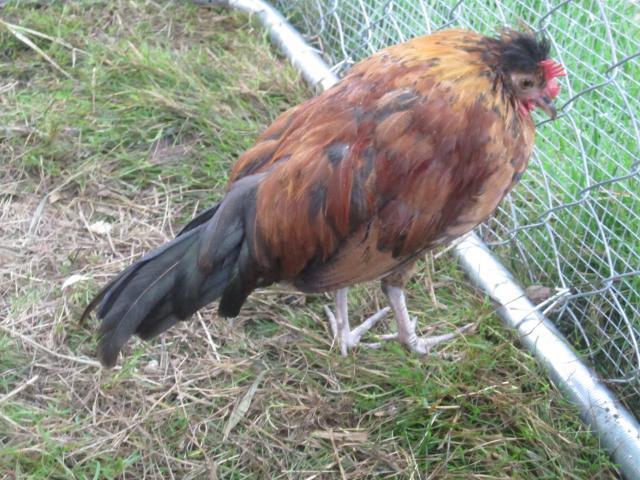This past July we got 6 mixed chicks and 2 pheasant chicks. Since then, we've had nothing but heartache. When we got them they were sick and lethargic, and had bloody droppings, so i treated them with sulmat (i believe it is called that).
There was improvement for awhile, and then a little while ago, one of our hens became weak and started tripping over her legs. She had an appetite until the end, but just didn't make it. We thought it may be marek's, but was never confirmed. During that time we added poultry vitamins in their water for the recommended amount of time.
Now, yesterday I noticed one of my roosters was very sickly looking. Not paralyzed, but standing there kind of puffy, lethargic, droopy and just not looking great. I noticed a couple droppings that had a bit of blood in it and started treating with sulmat again. Is this what I should do?
What could it be? Could it be Marek's again with no paralysis? Could my flock have some other sort of parasite/disease/worms that is making them unwell and I dont know of? What should my next move be?
I am thinking of going to the chicken feed store, but I dont know what medications to ask for! Any advice?
What could it be?? All I wanted were healthy, happy chickens.. I didn't expect all this heartbreak.
There was improvement for awhile, and then a little while ago, one of our hens became weak and started tripping over her legs. She had an appetite until the end, but just didn't make it. We thought it may be marek's, but was never confirmed. During that time we added poultry vitamins in their water for the recommended amount of time.
Now, yesterday I noticed one of my roosters was very sickly looking. Not paralyzed, but standing there kind of puffy, lethargic, droopy and just not looking great. I noticed a couple droppings that had a bit of blood in it and started treating with sulmat again. Is this what I should do?
What could it be? Could it be Marek's again with no paralysis? Could my flock have some other sort of parasite/disease/worms that is making them unwell and I dont know of? What should my next move be?
I am thinking of going to the chicken feed store, but I dont know what medications to ask for! Any advice?
What could it be?? All I wanted were healthy, happy chickens.. I didn't expect all this heartbreak.


